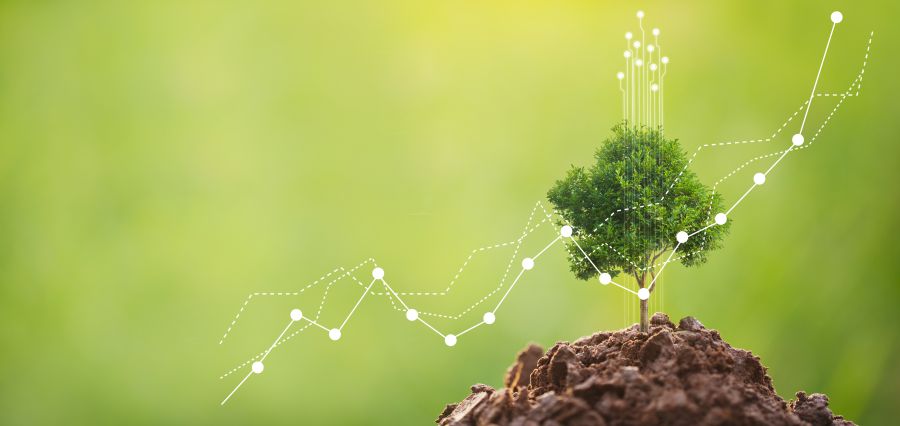The Sustainability Leaders
The urgency of climate change and environmental degradation has pushed sustainability to the forefront of the corporate agenda. Gone are the days when sustainability initiatives were seen as mere PR exercises.
Today, modern companies are embracing a holistic approach to sustainability, integrating it into their core operations and leading the way in building a more sustainable future. In an era marked by environmental challenges and climate change, the role of businesses in promoting sustainability has become increasingly critical.
Modern companies are not just focusing on profits but are also embracing sustainable practices that ensure long-term ecological balance, social equity, and economic viability. Here’s how these forward-thinking organizations are leading the way in building a sustainable future:
Integrating Sustainable Practices
Leading companies today are embedding sustainability into their core operations. This involves adopting eco-friendly manufacturing processes, reducing waste, and minimizing carbon footprints. Companies like Patagonia and Unilever are renowned for their sustainable supply chains and commitment to reducing environmental impact. By integrating sustainable practices, these companies ensure that their operations contribute positively to the planet.
Innovative Products and Services
Innovation is a key driver of sustainability. Companies are developing products and services that meet consumer needs while also being environmentally friendly. Tesla’s electric vehicles, for instance, are revolutionizing the automotive industry by offering a viable alternative to fossil fuel-dependent transportation. Similarly, IKEA’s focus on sustainable furniture design highlights how innovation can lead to environmentally conscious products that appeal to modern consumers.
Renewable Energy Adoption
The shift towards renewable energy sources is a significant step for many companies aiming to reduce their environmental footprint. Corporations like Google and Apple have committed to powering their operations entirely with renewable energy. This move not only reduces greenhouse gas emissions but also sets a benchmark for other companies to follow.
Circular Economy Models
The concept of a circular economy is gaining traction among sustainability leaders. This model focuses on reusing, refurbishing, and recycling existing materials to create a closed-loop system that minimizes waste. Companies like Philips and H&M are implementing circular economy principles to extend the life cycle of their products and reduce waste.
Community and Social Impact
Sustainability is not just about the environment; it also encompasses social responsibility. Companies are increasingly focusing on improving the well-being of the communities they operate in. This includes fair labor practices, community development programs, and initiatives that support education and health. Ben & Jerry’s and TOMS are examples of companies that have built their brands around strong social missions.
Transparent Reporting and Accountability
Transparency and accountability are crucial for maintaining trust with stakeholders. Sustainability leaders are committed to reporting their environmental and social impact transparently. They set measurable goals, track progress, and communicate their achievements and challenges openly. This accountability ensures that companies remain committed to their sustainability goals and continuously strive for improvement.
Collaborations and Partnerships
No company can achieve sustainability alone. Leading companies are forming partnerships with governments, non-profits, and other businesses to drive large-scale environmental and social change. Collaborations such as the UN Global Compact and the Sustainable Apparel Coalition demonstrate how joint efforts can lead to significant advancements in sustainability.
Beyond Greenwashing: A Holistic Vision
Modern sustainability leadership goes far beyond simply using recycled paper or planting a few trees. It’s about a fundamental shift in corporate mindset, prioritizing environmental and social responsibility alongside economic well-being. Here are some key areas where leading companies are making a difference:
Embracing Renewable Energy: Companies are investing in renewable energy sources like solar and wind power to reduce their reliance on fossil fuels and minimize their carbon footprint.
Resource Efficiency: Sustainable leaders are optimizing resource utilization throughout their supply chain. This includes minimizing waste, using recycled materials, and employing water-saving technologies.
Circular Economy Champions: Modern businesses are adopting circular economy principles, where products are designed for longevity and materials are repurposed or recycled at the end of their lifespan.
Empowering Communities: Leading companies are actively engaging with local communities, working towards social development and environmental protection in the areas where they operate.
Benefits Beyond the Planet
Sustainability isn’t just good for the environment; it’s good for business too. Companies that embrace sustainable practices often experience:
Enhanced Brand Reputation: Consumers are increasingly drawn to brands that prioritize sustainability, leading to a positive brand image and potentially increased customer loyalty.
Improved Operational Efficiency: Resource efficiency practices often translate to cost savings for businesses.
Innovation and Competitive Advantage: Sustainability challenges spark innovation, leading to the development of new products and services that appeal to environmentally conscious consumers.
Attracting and Retaining Talent: Millennials and Gen Z prioritize working for companies committed to sustainability, making these businesses more attractive to top talent.
Leading the Way Forward
Modern companies are not just responding to environmental challenges; they are becoming leaders in shaping a more sustainable future. By adopting innovative practices, collaborating with stakeholders, and advocating for change, these businesses are paving the way for a future where economic growth and environmental responsibility go hand-in-hand. The actions of these sustainability leaders inspire others to follow suit, creating a ripple effect that can have a transformative impact on our planet.
The Future of Sustainability
As technology advances and environmental awareness continues to grow, we can expect even more innovative and impactful sustainability practices from leading companies. Collaboration between businesses, governments, and environmental organizations will be crucial in accelerating progress towards a truly sustainable future. By working together, we can build a world where businesses thrive alongside a healthy planet for generations to come.








